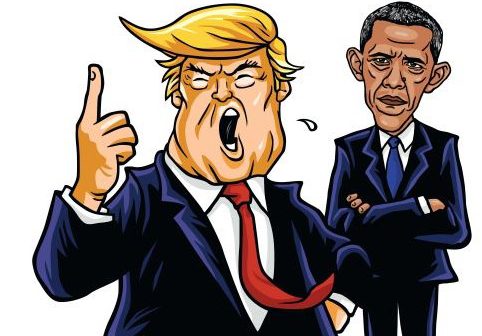When Donald Trump ascended to the presidency, one of his main goals was to undo the democratic legacy of Barack Obama, not least his regulatory legacy. That has raised hackles among some who see Trump’s agenda as ignoring the will of the people on issues ranging from net neutrality to immigration to gun control.
Earlier this year, for example, California Attorney General Xavier Becerra filed a lawsuit in the U.S. Court of Appeals for the District of Columbia against the Federal Communications Commission (FCC) alleging that the Trump administration is ignoring the millions of Americans who voiced strong support for net-neutrality rules, one of the higher-profile accomplishments of Obama’s regulatory framework that have fallen by the wayside.
“Internet access is a utility – just like water and electricity,” said Mr. Becerra in a statement online. “And every consumer has a right to access online content without interference or manipulation by their internet service provider. However, in repealing the net neutrality rules, the FCC ignored consumers’ strong support for a free and open internet.”
State petitioners, including New York, Connecticut, Hawaii and others, allege the FCC order was arbitrary, capricious and an abuse of discretion within the meaning of the Administrative Procedure Act (APA).
“The Trump Administration is not complying with the APA —which puts limits and restrictions on how agencies can issue and undo rules—in many cases where they are trying to undo Obama-era regulations,” said Adam Pulver, attorney with the Public Citizen Litigation Group, a watchdog organization.
But the FCC has responded, on September 30 by seeking a federal injunction in the Eastern District of California that would block the state’s net neutrality law that is set to take effect Jan. 1. The federal government alleges it unlawfully imposes burdensome state regulations on the free internet and violates the Supremacy Clause of the U.S. Constitution.
“Not only is California’s Internet regulation law illegal, it also hurts consumers,” said FCC Chairman Ajit Pai in a statement online. “The law prohibits many free-data plans, which allow consumers to stream video, music, and the like exempt from any data limits.”
“California imposes more stringent requirements than the FCC in that SB-822 broadly prohibits companies from offering ‘free data’ arrangements that exempt certain Internet traffic from data limitations and apparently prevents ISPs from offering or providing a range of specialized services over the same last-mile connection,” wrote attorneys for the Department of Justice.
Immigration policy is another that has been squarely in Trump’s target, including the International Entrepreneur Parole rule for foreign investors. The National Venture Capital Association responded with a lawsuit in the U.S. District Court for the District of Columbia when the Trump administration rescinded it without notice of proper rulemaking, “NVCA’s members have invested, will invest or would consider investing in new companies that have founders who could apply for parole under the Rule,” wrote NVCA attorneys. “The delay of the Rule puts these investments in jeopardy and chills potential future investments.”
Atma and Anand Krishna, for example, who would have qualified to apply for parole may have lost an opportunity to come to the United States and grow the business into which they have dedicated significant time and resources.
“Their inability to remain in or come to the United States will make it far harder for them to grow LotusPay and attract additional U.S.-based and international investment,” wrote attorneys for the plaintiffs. “And it will make it impossible for them to expand their operations and the product to the United States, which they have otherwise considered doing.”
The International Entrepreneur Parole rule was enacted by the Obama administration to take effect in July 2017 to provide a way for foreign entrepreneurs to stay in America for a period of up to five years as a resident.
-
“International Entrepreneur Parole was one of the purest merit-based immigration propositions you could think up and abolishing it belies to me a lack of sincerity on the part of the new administration regarding what their real intentions are,” said Stephen P. Pazan, special counsel with Barket Epstein in New York. “I wonder if it’s not coincidental that the people impacted by the abrogation of this particular rule are Indians or Chinese.”






